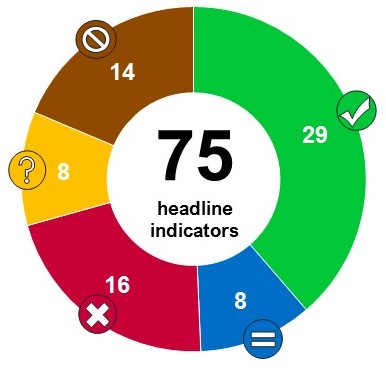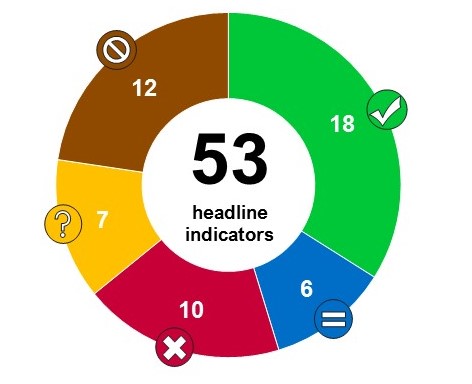Executive summary
The Covid-19 pandemic has made the past year one full of difficulties for everyone around the world. In Coventry, Covid-19 directly resulted in the deaths of 682 residents; caused long-term health conditions affecting the day-to-day activities for thousands of residents; and the associated lockdowns and restrictions have caused disruption to the daily lives of all 379,000 residents in the city. To put this in perspective, more residents have died from Covid-19 than from the city’s darkest hour when much of the city centre was devastated during the night of the Coventry Blitz on 14/15 November 1940.The Covid-19 pandemic has made the past year one full of difficulties for everyone around the world.
The social and economic upheaval associated with the Covid-19 pandemic and associated restrictions has had a negative effect on a number of indicators, with the city facing increases in unemployment; increases in crime (particularly violent crime, and domestic abuse); and decreases in the size of the city’s economy (as measured by gross domestic product). While business support grants and furlough schemes have provided some limited relief, economic activity has collapsed over much of the year; and this is reflected in a significant drop in the in-year council tax and business rates collection rates.
All of these factors have contributed to an unprecedented level of demand for all kinds of Council services; for example, worries about money, school closures and other pandemic-related stresses on families increasing demand for children’s services; increase in online deliveries leading to large increases in the demand for household waste and recycling services; and limits on social contact impacting on the effectiveness of a wide range of services to our most vulnerable residents.
To address these challenges, the Council has significantly transformed the way it works, resulting in more than doubling of transactions completed through self-service channels to reducing sickness absence despite the pandemic; not to mention the leading role it has taken in supporting residents through the pandemic from supporting the city’s most residents through deliveries of essentials and supporting businesses to re-open safely; to going full steam ahead with transformation projects from the rail station developments to city centre public realm works. As the city recover from the pandemic, echoes of the city's Phoenix-like resurgence after the Blitz can be seen everywhere, from the global coverage of the world’s first Covid-19 vaccination outside of clinical trials at the city’s University Hospital; to a year of the city in the spotlight as the UK City of Culture 2021.
The One Coventry Plan is currently measured using 75 indicators, of which 29 indicators improved; 8 stayed the same; 16 indicators got worse; can’t say for 8 indicators; and progress is not available for the remaining 14 indicators.
This means, 70% (37/53) of directional indicators (excluding cannot say or not available) improved or stayed the same. This is lower than the performance seen in previous years: 79% (50/63) in 2019/20, 78% (52/67) in 2018/19, 71% (42/59) in 2017/18, and 75% (43/57) in 2016/17; reflecting the significant pressures the city and Council services are facing.
A large number of indicators are not available this year compared to before. This is because there is limited data on school performance as a result of exam cancellations last summer, and limited data on some survey-based adult social care measures.
Globally connected: promoting the growth of a sustainable Coventry economy
The challenging economic climate has resulted in fewer active enterprises and higher unemployment, particularly for men.
Our housing stock has grown, with a slight increase in larger family and aspirational homes in line with our objectives.
Difficulties faced by households and businesses have resulted in a drop in the in-year collection of council tax and business rates.
Locally committed: improving the quality of life for Coventry people
Fly-tipping has increased by 62%. While we have investigated many more fly-tips, this massive increase puts pressure on our ability to respond.
There has been a 9.5% increase in crime, with increases in assault, harassment, and domestic abuse.
More residents have taken up walking and cycling for leisure this year, particularly during the lockdowns.
After the first lockdown, the city saw a sustained and considerable increase in the number of looked after children.
Delivering our priorities with fewer resources
Self-service transactions has increased nearly three-fold – as more processes moved to online and virtual.
Carbon emissions decrease – with the exception of transport emissions as the Council delivered essentials to shielding residents.
Staff sickness absence decreased from 12.71 to 10.47 days per year.





